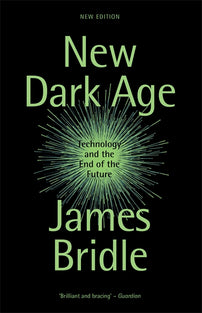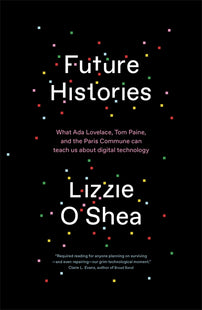Facebook 3.0
Last week, Mark Zuckerberg announced a series of changes to his global empire - could we be entering into a new stage of development for the internet behemoth? In this article, Lewis Bassett looks at the development of Facebook, and argues for greater democratic control over the use of data.

Mark Zuckerberg is a man with a mission, although that mission keeps changing. Back in 2013, the fresh-faced 29 year old mused as to whether global connectivity was a human right. “The internet not only connects us to our friends, families and communities, but it is also the foundation of the global knowledge economy.” The tone was utopian, the language idealistic. The only barriers at that stage, claimed Zuckerberg, was affordable access to the World Wide Web.
Five years later and Zuck appears no less youthful, yet his company is showing the signs of age. Stock prices in Facebook continue their endless rise, while the number of active users –1.5 billion per day – continues to grow. Yet evidence of a decline in total time spent on the platform prompted changes early last year particularly affecting the sharing of “passive content,” while new survey data raises long term concerns for Facebook as younger users in particular are opting for Instagram (also part of Zuck’s monopoly) over the old-fashioned website. This corporate side of Zuck’s empire has been made worse by a series of privacy scandals and the frequently hysterical discourse on election interference.
In an announcement last week Zuck appears to have moved on from Facebook 2.0, the point reached in the company’s history with the introduction of its newsfeed function in 2006. Global connectivity? Zuck’s over it. “Over the last 15 years, Facebook and Instagram have helped people connect with friends, communities, and interests in the digital equivalent of a town square. But people increasingly also want to connect privately in the digital equivalent of the living room” he writes.
What might a move to Facebook 3.0 entail? The answer, as is always the case with Facebook, is that we still don’t know what the long-term plan for the world’s biggest public sphere will be, or whether indeed there is one. Commentators without access to other forms of data can only make plausible claims regarding the company’s driving logic – which previously I argued are one part market driven, one part US centric – as well as speculate on the future based on other clues.
Concretely, Zuckerberg is proposing to integrate the three messaging apps in his empire – Facebook messenger, Instagram direct messages and WhatsApp. While previous changes to Facebook’s newsfeed were couched in the benevolent language of meaningful connectivity and concerns over users’ mental health, this consolidation of Zuck’s monopoly is framed in terms of privacy. The headline change is that messages across the platform will be encrypted so that even Facebook cannot access them.
The privacy discourse colours the more overarching shift for Facebook from global connections to more siloed and personal networks, as Zuck outlined in his statement: “with all the ways people also want to interact privately, there's also an opportunity to build a simpler platform that's focused on privacy first. … This is the future I hope we will help bring about."
In truth, privacy concerns and fake news have been a major headache for Zuckerberg. There comes a point where the modern media mogul has to wonder if global connectivity is really worth it. The changes proposed by Zuck come in the context of fines, investigations and growing calls to break up and regulate the monopoly. Facebook’s new privacy mission brief is another attempt to avoid these costs via self-regulation. But that’s where the core of the problem really lies.
Zuck has been wrestling with a dilemma posed by increased demands for more user privacy (however narrowly construed). As he writes, “when billions of people use a service to connect, some of them are going to misuse it for truly terrible things like child exploitation, terrorism, and extortion.” As such, the proposed changes come with a trade-off: should he make a network that is private but hard to police, or one that is less private but open to prying eyes? The former, announced Zuckerberg, “seems right to me." But despite a sixty per cent share in the company, should Zuck really be calling all the shots?
“Doing this” writes Zuckerberg “means taking positions on some of the most important issues facing the future of the internet. As a society, we have an opportunity to set out where we stand” – yet who is the “we” in this statement?
And what kind of internet is Facebook creating? Part of the popularity of Instagram derives from it being a less toxic environment than the existing alternatives. Yet it’s also less directly political as well, typically centred on consumer tastes and lifestyles. Perhaps, as I’ve suggested before, we are looking at the creation of a tiered internet with political content for those who can be trusted, and addictive, consumer-based environments for the rest? Or maybe, like contemporary politics in the Western world, this is where Facebook’s globalizing ambitions start to end. Is Facebook 3.0 the beginning of an era of internet protectionism?
Yet there is something worth preserving in the utopian language of the internet idealists and Silicon Valley libertarians that Facebook, masking the fact it is a corporate media monopoly like any other, has hidden behind. The vision of internet connectivity is one worth fighting for. In this debate, the public should be given a chance to answer a philosophical question as old as democracy itself: who controls access to information and how? As Facebook turns from the public square to the living room, it’s time we started to figure that out.
Lewis Bassett is writing a PhD on Jeremy Corbyn’s Labour Party.
[book-strip index="1" style="display"]

